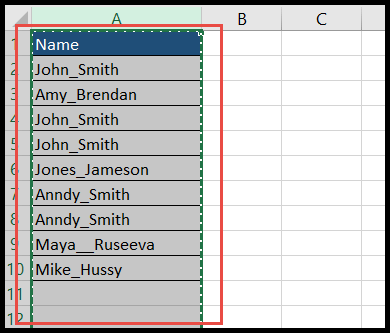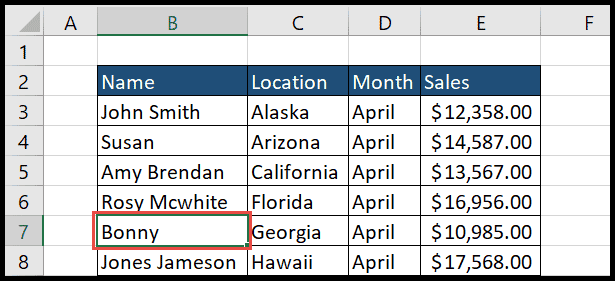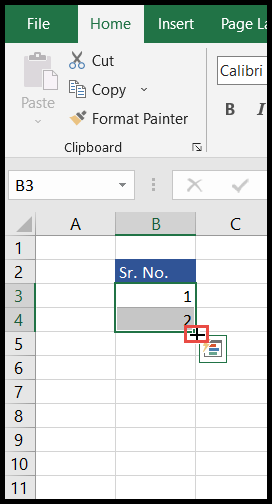Software as a Service (SaaS) is rapidly transforming how companies conduct business, offering cloud-based solutions that eliminate the need for physical software installation. This digital model has prompted many businesses to shift to SaaS platforms due to their ease of access, scalability, and cost-effectiveness. However, with the rise of SaaS, governments have begun to implement sales tax on these digital services, creating a complex fiscal landscape for companies to navigate.
Determining whether SaaS is taxable depends on the jurisdiction. For instance, as of early 2023, states like Kentucky and Massachusetts consider SaaS taxable, while other states, such as Maine and Maryland, do not tax SaaS when it’s used for business purposes. Such variations present a challenge for SaaS providers, especially when they serve customers across different states and countries, each with unique tax laws pertaining to digital goods.
Companies must stay current with the ongoing changes in sales tax legislation to ensure compliance and avoid potential financial penalties. As countries around the world begin to introduce tax regulations targeting digital services, the responsibility falls on SaaS businesses to understand and adhere to these diverse tax obligations. This evolving tax landscape underscores the importance for SaaS companies to have a robust strategy for managing sales tax liabilities as part of their overall business plan.
Understanding SaaS and Sales Tax
When it comes to Software as a Service (SaaS), the line between digital goods and services can blur, making tax implications complex. Each state has its own regulations, often categorizing SaaS differently when determining if it’s taxable.
Defining SaaS
Software as a Service (SaaS) refers to centrally hosted software that is accessed and used over the internet. Unlike traditional software that is bought and installed on individual devices, SaaS is typically delivered on a subscription basis and is considered an intangible asset.
Sales Tax Basics
Sales tax is a financial charge imposed on the sale of goods and services, which can extend to digital products and technology services. It varies by jurisdiction, but generally, any transaction involving the transfer of tangible personal property or specific services is potentially taxable. When SaaS is deemed a digital good, states may tax it as if it were tangible property. However, when viewed strictly as a service, it may fall into a different tax category or be exempt altogether. Contracts for SaaS can further complicate tax status, depending on whether they are considered to be for a product or a service.
SaaS Sales Tax by State
In the shifting landscape of SaaS sales tax, variations across states become a focal point for companies navigating compliance. Taxability and rates for SaaS products can significantly differ from one state to another.
Key States with SaaS Tax Rulings
- Colorado: SaaS sales are generally not taxed.
- New York: Taxes SaaS products as a type of software.
- Tennessee: Considers SaaS taxable as the provision of access to computer software.
- Texas: Levies taxes on SaaS at 80%, while 20% remains exempt.
- Washington: Classifies SaaS under software, rendering it taxable.
State-by-State SaaS Taxation Overview
- Arizona: Sales tax applies.
- California: Generally nontaxable.
- Connecticut: Taxable.
- Florida: Not generally taxable.
- Illinois: Taxable.
- Kentucky: Taxable since January 1, 2023.
- Louisiana: Taxable.
- Maine: Non-taxable.
- Maryland: Non-taxable when used for business purposes as of July 1, 2022.
- Massachusetts: Taxable.
- Michigan: Generally non-taxable.
- Minnesota: Taxable.
- North Dakota: SaaS not subject to sales tax.
- Ohio: Taxable.
- Pennsylvania: Taxable.
- Vermont: Not subject to sales tax.
- Virginia: Not subject to sales tax for the most part.
- Washington D.C.: Taxable.
- West Virginia: No specific taxation information available.
- Wisconsin: Taxable.
- Wyoming: No sales tax on SaaS.
Compliance and Management
Navigating the complex landscape of sales tax for Software as a Service (SaaS) requires a keen understanding of varying regulations and the right tools for efficient management. In the U.S., SaaS companies face disparate tax laws across states, making compliance a significant operational concern.
Economic Nexus and SaaS
Each state sets its own economic nexus threshold, which is the amount of sales or transactions a business can have before it’s required to collect sales tax in that state. Most states consider SaaS products taxable and have enacted specific laws defining how these digital services meet nexus criteria. For SaaS businesses expanding across state lines, understanding and monitoring these thresholds is crucial to accurately determine where they have a sales tax nexus and must comply with local tax codes.
SaaS Sales Tax Compliance
To remain compliant, SaaS companies must navigate a range of sales tax rates and regulations that differ by state. They are responsible for accurate tax rate determination, filing sales tax returns, and remittance of the taxes collected from customers. Penalties for non-compliance can be substantial, hence, staying current with sales tax laws is non-negotiable for SaaS businesses. This often involves keeping track of where their customers are located and understanding if a product is taxable or if specific exemptions apply.
Technology and Tax Automation
Leveraging technology such as tax automation platforms is increasingly the go-to strategy for SaaS companies. Tools like Avalara provide cloud-based solutions that automatically calculate the correct tax rates, file returns, and manage remittance—all based on up-to-date sales tax laws. This not only reduces human error but also frees up resources, allowing businesses to focus more on growth and less on the intricacies of tax regulations. Automation ensures that SaaS companies can effortlessly adapt to changes in tax compliance, whether they’re expanding their revenue streams or scaling into new locations.
Navigating Audits and Legal Challenges
When it comes to sales tax on Software as a Service (SaaS), vendors need to be prepared for intense scrutiny through audits and the complex legal landscape that varies across jurisdictions.
Handling Sales Tax Audits
Handling sales tax audits requires SaaS companies to maintain comprehensive records and clarity on tax rates applicable within different states. Audits focus on whether a company has correctly collected and remitted sales tax in accordance with each jurisdiction’s regulations. Here’s how they can tackle it:
- Organize Documentation: Keep all sales transaction records, exemption certificates, and tax filing documents orderly and easily accessible.
- Understand Nexus: Knowing whether the business has a physical presence or meets economic thresholds in states can establish nexus, which obligates tax collection.
- Regular Reviews: Periodic self-audits help identify discrepancies preemptively.
Legal Considerations for SaaS Vendors
Legal considerations for SaaS vendors often involve the interpretation of varying state laws related to digital goods. They must:
- Stay Updated: State laws evolve, and so too should the strategies of SaaS vendors to stay compliant.
- Seek Expertise: Because laws differ widely, working with tax professionals provides a buffer against potential pitfalls.
Adhering to these practices ensures SaaS companies can face audits with confidence and uphold compliance in a dynamic legal environment.
Practical Guide for SaaS Providers
For SaaS companies navigating sales tax laws, understanding the specific regulations in each jurisdiction where they operate is key.
Sales Tax Laws by State:
- Connecticut: The state imposes a sales tax on SaaS, so any seller must collect and remit accordingly.
- Tennessee: SaaS businesses have to comply with sales tax as digital products are taxable here.
- Texas: Rates are nuanced; SaaS is taxed at 80% of its value, while 20% is exempt.
- Vermont: SaaS is not subject to sales tax, offering a bit of relief in this jurisdiction.
Economic Nexus:
As of recent changes, SaaS providers may establish an economic nexus in states where they have no physical presence but exceed a certain threshold of sales. They should regularly check if they’ve reached such a threshold and should comply with sales tax regulations accordingly.
Calculating Sales Tax Rates:
SaaS companies should use precise tools to calculate sales tax rates, as they can vary not just by state, but down to city and county levels. Up-to-date software or services specializing in tax compliance can be invaluable.
Guide for Compliance:
- Maintain accurate records of where customers are located.
- Use automation where possible to handle varying rates and rules.
- Regularly review changes in sales tax laws that may affect SaaS sales.
- Consult a tax professional for complex scenarios or when entering new markets.
In conclusion, staying compliant requires diligence and a keen awareness of the evolving tax landscape as it pertains to SaaS sales.
Future Trends and Predictions
As SaaS businesses continue navigating the rapid evolution of technology and compliance, sales tax remains a challenging aspect. States and countries are reevaluating their tax laws to catch up with the cloud-based economy. Here’s what’s on the horizon:
-
Greater Compliance Complexity: Expect more intricate sales tax laws, as jurisdictions seek to capitalize on SaaS revenue. For companies, this means staying agile with compliance efforts.
-
Automated Tax Solutions: There’s a trend towards using technology to manage sales tax complexity. SaaS companies are likely to adopt automated tax compliance tools to reduce manual errors and stay compliant.
-
Global Expansion Impact: As SaaS companies expand globally, they’ll face varying tax laws across borders. Staying informed about different tax jurisdictions will be critical.
-
Focus on Legislation: With the rise of SaaS comes increased legislative focus on how these software services are taxed. It’s probable that new laws will reflect the changing landscape.
In the next few years, keeping up with sales tax will be as dynamic as the tech advancements that SaaS companies create. They’ll need to monitor the pulse of tax regulations closely and harness technology not only to deliver services but also to remain tax-compliant. Here’s a quick snapshot:
| Trend | Implication for SaaS Companies |
|---|---|
| Rising Tax Complexity | Need for dedicated resources to track compliance |
| Automation | Investment in automated tax software |
| Global Market Presence | Awareness and preparation for international taxes |
| Changing Legislation | Ongoing legal advisory and strategy adjustment |
In essence, the future demands that SaaS businesses are as innovative with their sales tax strategies as they are with their products.
Frequently Asked Questions
Sales tax on Software as a Service (SaaS) can be complex, as it varies from state to state in the U.S. This section addresses common queries regarding the SaaS sales tax landscape.
How does SaaS sales tax vary from state to state?
Each state has its own set of rules for taxing SaaS products. While some states tax SaaS as a service, others do not tax digital products at all. Texas, for example, taxes 80% of SaaS, whereas Vermont and Virginia do not tax SaaS services.
What’s the deal with Colorado’s sales tax on SaaS?
Colorado has a nuanced approach to SaaS taxation, with the state’s Department of Revenue treating SaaS as taxable tangible personal property. However, exact applicability may vary based on local jurisdictions within the state.
Can you recommend a calculator for estimating SaaS sales tax?
Calculators provided by professional tax software companies can estimate SaaS sales tax. These calculators typically require inputs such as the user’s location and the nature of the service to provide an estimation.
Is there sales tax on SaaS products in Alabama?
SaaS products in Alabama are considered taxable under the state’s definition of tangible personal property, which includes “digital products” that are transferred electronically.
Just curious, does Florida impose a sales tax on SaaS?
Florida does not currently impose a sales tax on SaaS. The state has not extended its sales tax to services, including digital services like SaaS.
Are software-as-a-service sales considered taxable in California?
California views SaaS as a service, not tangible personal property, therefore SaaS is generally not subject to sales tax. But regulations are subject to change, and businesses should stay updated on recent laws.



